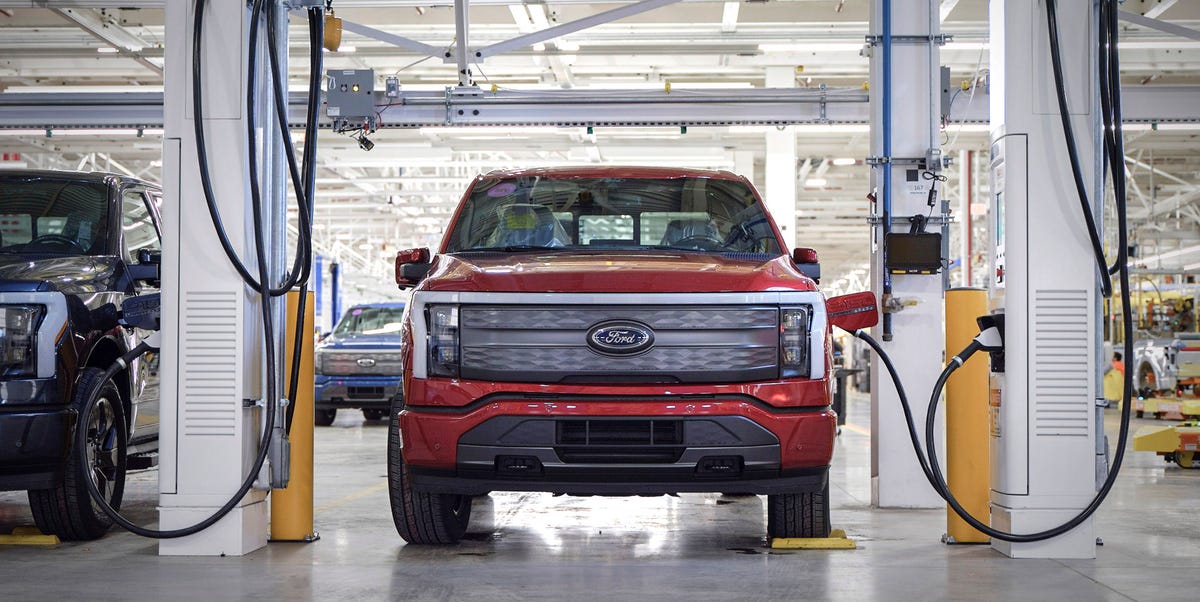
- The Department of Energy is launching the Electric Vehicles for American Low-Carbon Living (EVs4ALL) program, dedicated to improving battery technology.
- The program will provide up to $45 million for the domestic development of electric-vehicle batteries.
- The program aims for batteries with faster charging times, less susceptibility to extreme temperatures, and better range retention over a battery’s lifespan.
The Department of Energy (DOE) has announced a new venture for the advancement of electric vehicles in the U.S., creating a program to fund the development of cheaper, more efficient, and longer-lasting batteries. This follows an announcement from February when the DOE and the Department of Transportation launched a joint office to oversee the expansion of America’s electric-vehicle charging network, pledging $5 billion to states over the next five years to create a “spine” of chargers along the interstate highway system.
The new battery-focused program is called EVs4ALL and will dedicate up to $45 million to fund the domestic development of advanced batteries for EVs. It’s organized through division called Advanced Research Projects Agency-Energy (ARPA-E). This funding comes from ARPA-E’s fiscal year 2022 appropriation from Congress, and not from the Bipartisan Infrastructure Law that is funding the charging network expansion. The program will take applications from groups including automakers, battery suppliers, American universities, and national laboratories.
The project has three key goals for batteries: faster charging, higher efficiency, and improved longevity. The DOE acknowledges that many Americans do not live in residences where they can easily install a home charger, and is seeking to decrease recharging times to as low as five minutes to benefit those who cannot recharge overnight at home. The department also wants batteries to be more efficient and more able to withstand extreme temperatures without losing significant amounts of energy, in a bid to boost EV adoption rates in colder regions of the country. Lastly, the department notes that two-thirds of Americans purchase used cars and aims to increase range retention over the lifespan of batteries, so that batteries won’t need to be replaced as often on older EVs and those in the used car market have access to EVs with a respectable amount of driving range.
While the funding is separate from the Bipartisan Infrastructure Law signed by President Biden last November, the new program from the Department of Energy will be crucial for Biden’s goals to have EVs make up half of all vehicle sales in 2030. The Department of Energy hopes that the funding can lead to better batteries that assuage the fears that still have many Americans wary of purchasing an EV.
This content is created and maintained by a third party, and imported onto this page to help users provide their email addresses. You may be able to find more information about this and similar content at piano.io
